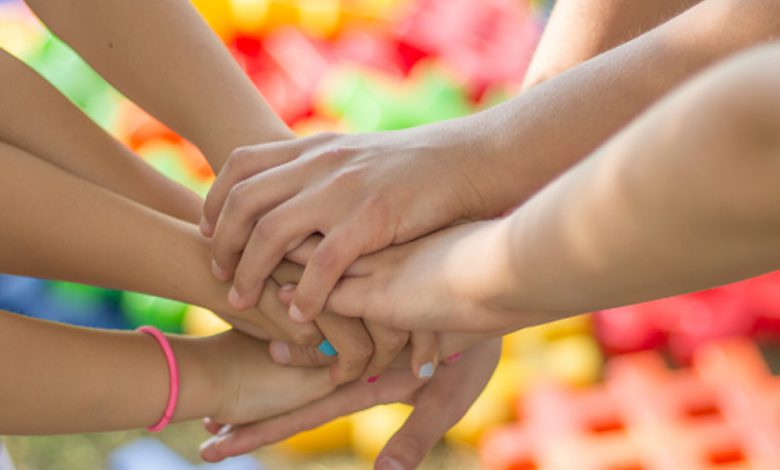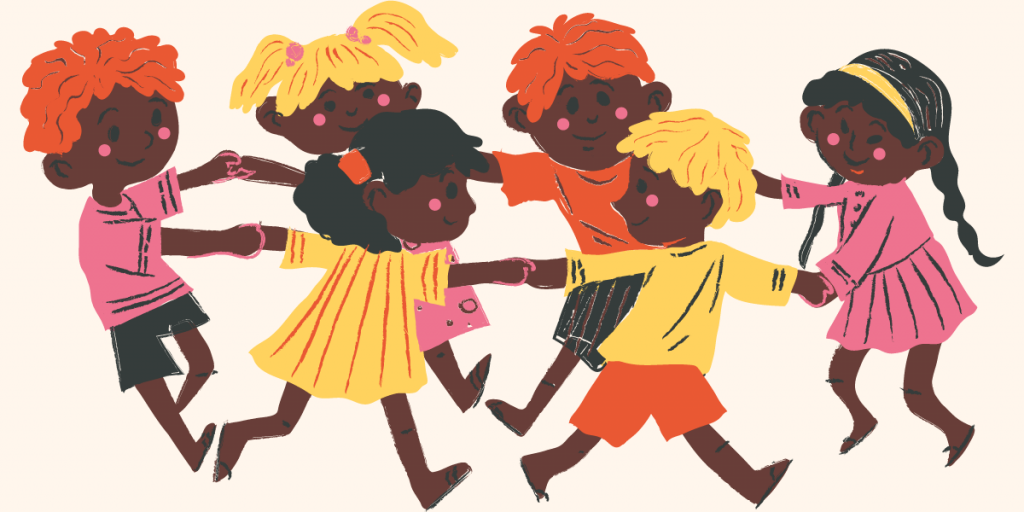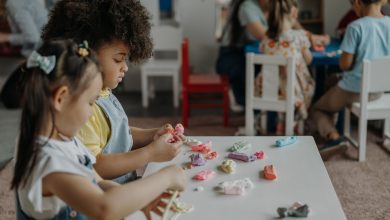5 Reasons Group Games Are Essential for Kids

Who doesn’t like group games, or games in general? They’re not just fun, they’re beneficial, too, in hundreds of ways! Fortunately, parents have nowadays come to realize how important games are in terms of both entertainment and education. Kids simply play, and as a side result, learn new things and figure out fundamental skills they will need in order to succeed in life.
We do argue group games provide even more comprehensive benefits than single-player games, but why? Here are some major benefits group games could offer.
Group games Encourage Social Interaction
Double, triple, quadruple benefits!
Whether it’s to talk to other players or to celebrate a win, group games always involve much social interaction. Reading dialogues in a story or hearing about how to behave in front of other people can only get you so far; it’s through real interactions with others that you acquire the nuances of social life. What better social interactions for a kid than those group games can offer?
And such social interactions aren’t routine, either. Routine interactions require minimum effort and, consequently, minimum learning. (Like many interactions your kids have with you daily regarding eating, doing chores, kindly bringing you that pen, etc.) We know children’s brains are constantly learning and adapting; let’s encourage them to use this quality to the fullest and learn as much as possible! Through social interactions, several other skills emerge. Namely teamwork, cooperation, empathy, and self-maintenance.
Group Games Foster Teamwork
An essential skill in life
Developing teamwork skills gives children a head start at school and later, in the workplace. (Teamwork has been on the list of top in-demand soft skills for quite some time, and no-one expects it to get off that list anytime soon.)
The essence of teamwork is implemented in many group games. (One might even argue that these games are more fun!) Teamwork is also not just one whole skill; it’s a combination of getting along with other people, communicating with them, complementing their performance and letting them complement yours, dividing up tasks for a quicker win, creating a workflow, synergizing for a common goal, and quite a number of other skills.
Keep in mind that all of these skills are quite important and also quite sure to come up later in life. Learning them all can take much valuable time; so, the sooner our kids can get started on them, the more successful they will be in the future.

Group Games Reinforce Learning
And not in a boring way
Group games can help learning in two (rather indirect) ways: through social interactions and built-in game mechanisms.
We have already argued social interactions are essential and abundantly found in group games. Let us now emphasize that much knowledge can only be used and evaluated in interaction with others. Take the simple lesson of “be kind to others”, or other manners, that you might teach your kid. One surefire way for your kid to realize why they should be kind is to try it on other people. (For example, your kid might think “George was upset when I was rude to him.” This could easily be followed by “Maybe everyone gets upset when I’m rude to them.”)
Games’ mechanisms are important, too. Many are understandably not designed to teach, but still feature challenges that require thinking and creativity. It goes without saying that group games, since they have to do with other people, are more complex and more challenging.
Group Games Keep Children Active
And this helps them develop motor skills
Most group games provide consistent physical challenges that let children channel their endless energy into a fun and productive activity. For example, when they try to catch each other in tag or stay still as they hide in hide and seek, kids are working on developing their gross motor skills.
Such group games can also help spark a lifetime healthy relationship with physical activity and sports, and lay the foundation for an active life.
Group Games Hold Off the Gloom
Which has been too near
Many of us have come to touch on depression and internal crises. (Kids and adults alike, with kids being more susceptible.) Fortunately, propositions and plans on how to keep sane and go through everything are endless. The problem is, while we adults might be able to go hiking alone and spend some time by ourselves to clear our heads and feel better, our kids are probably not able to be alone that long. Kids aren’t as mindful of their thoughts and feelings, and much of the time they need external help.
Group games are always great external help; and they go against single-player games in this case, which makes them even better. As discussed at length, group games put kids in contact with each other, and help their minds wander to realms outside of loneliness and gloom of any kind.
Conclusion
Group games have invaluable benefits that can’t be found in solitary play or many other activities. They can teach kids the specifics of life in a society, and help them to become better citizens. They get kids started on the first steps of teamwork, a much-needed skill in adulthood. They provide a perfect opportunity for kids to put their learnings into action. If they require physical activity, they will provide a healthy outlet for releasing energy, and help kids maintain a fitter lifestyle in the future. And finally, they are one of the greatest strategies to help kids cope with the pandemic.
Thinking of a daycare to provide your kid with all these benefits? Consider a tour of Clever. We provide 24/7 care featuring play-based tasks, free play, and much more. Don’t hesitate to contact for any and all questions!





